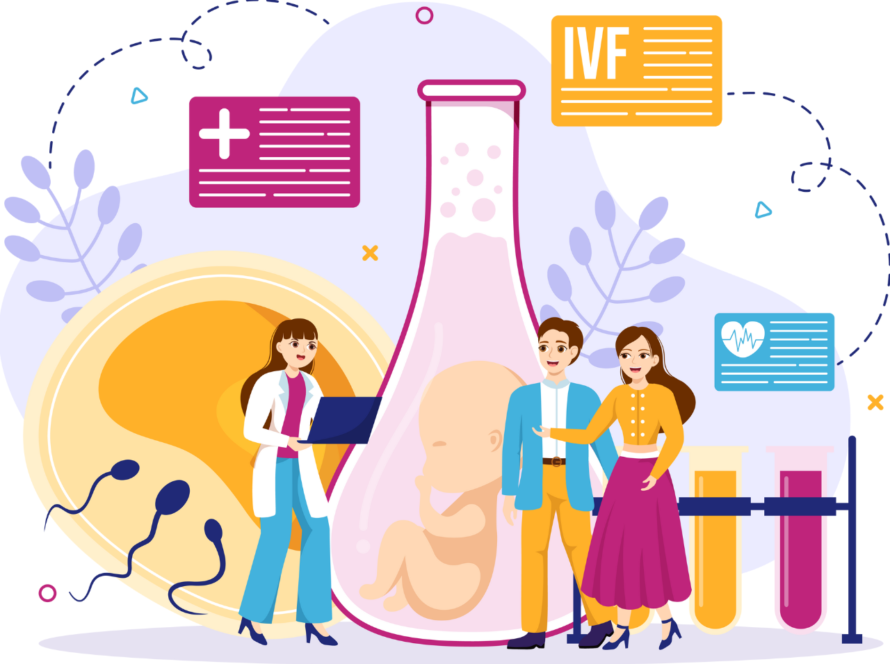Infertility can be an emotionally overwhelming experience, especially when you don’t know what signs to look out for or when to seek help. At Mithran Fertility Center in Chidambaram, we often meet women who delay consultation because they didn’t recognize the early signs. In this blog, we’ll talk about common signs of female infertility, potential causes, and when to consult a fertility specialist.
What Is Female Infertility?
Female infertility is defined as the inability to conceive after trying for 12 months (or 6 months if over the age of 35) despite having regular, unprotected intercourse. It may be caused by problems related to ovulation, fallopian tubes, the uterus, or hormonal imbalances.
According to the Indian Society of Assisted Reproduction (ISAR), 10-14% of Indian women face fertility issues — with higher prevalence in urban areas and among women over 30.
Common Signs of Female Infertility
- Irregular Menstrual Cycles
A normal cycle is typically between 21 to 35 days. Irregular periods can signal problems with ovulation.
- Absence of Periods (Amenorrhea)
Missing your period for several months without pregnancy is a red flag. It could indicate PCOS, thyroid disorders, or early menopause.
- Painful Periods
Severe cramping or pelvic pain during menstruation may indicate endometriosis — a common cause of infertility.
- Heavy or Light Bleeding
Unusual menstrual flow can hint at hormonal imbalance or uterine fibroids.
- Hormonal Imbalances
Symptoms like excessive facial hair, acne, sudden weight gain, or hair thinning can be due to PCOS or thyroid problems.
- Pain During Intercourse
Painful sex (dyspareunia) could be caused by endometriosis, pelvic inflammatory disease (PID), or fibroids.
- Recurrent Miscarriages
Two or more consecutive miscarriages may indicate underlying fertility issues and require medical evaluation.

Medical Conditions That Affect Fertility
Here are some conditions that may lead to infertility in women:
- Polycystic Ovary Syndrome (PCOS)
- Endometriosis
- Pelvic Inflammatory Disease (PID)
- Uterine fibroids or polyps
- Thyroid dysfunction
- Premature Ovarian Insufficiency
Autoimmune disorders
When Should You See a Fertility Doctor?
Consider consulting a fertility specialist if:
- You’re under 35 and haven’t conceived after 12 months of trying
- You’re over 35 and haven’t conceived after 6 months of trying
- You have irregular or absent periods
- You have a known reproductive health issue like PCOS or endometriosis
- You’ve experienced multiple miscarriages
Early intervention can make a big difference — the sooner you get help, the more options you may have.
How Mithran Fertility Center Can Help
At Mithran Fertility Center in Chidambaram, we understand the emotional and physical challenges of infertility. We offer:
- Advanced diagnostic tests for women
- Personalized treatment plans (IUI, IVF, ICSI, ovulation induction, and more)
- Supportive care in a confidential and compassionate environment
Whether you’re just starting your fertility journey or have been trying for years, we are here to help.
FAQs
Yes, chronic stress may affect hormone levels and ovulation. Mind-body balance is important for reproductive health.
In many cases, yes. With proper diagnosis and treatment, many women go on to conceive successfully.
Diagnosis may involve blood tests, ultrasound scans, ovulation tracking, and hysterosalpingography (HSG) to check for blocked fallopian tubes.
Conclusion
Recognizing the signs of female infertility early can be life-changing — especially for couples hoping to start or grow their family. While missed periods, hormonal imbalances, or irregular cycles might seem common, they can sometimes indicate underlying reproductive issues that deserve medical attention. The key is not to panic but to stay informed.
If you’ve been trying to conceive for over a year (or six months if you’re over 35) without success, it’s time to consult a fertility specialist. At Mithran Fertility Center in Chidambaram, we understand the emotional journey of infertility. Our compassionate team offers advanced diagnostics, personalized treatment plans, and emotional support every step of the way.
Don’t wait in silence. Early consultation can lead to better outcomes and give you clarity, confidence, and a clear path forward.




